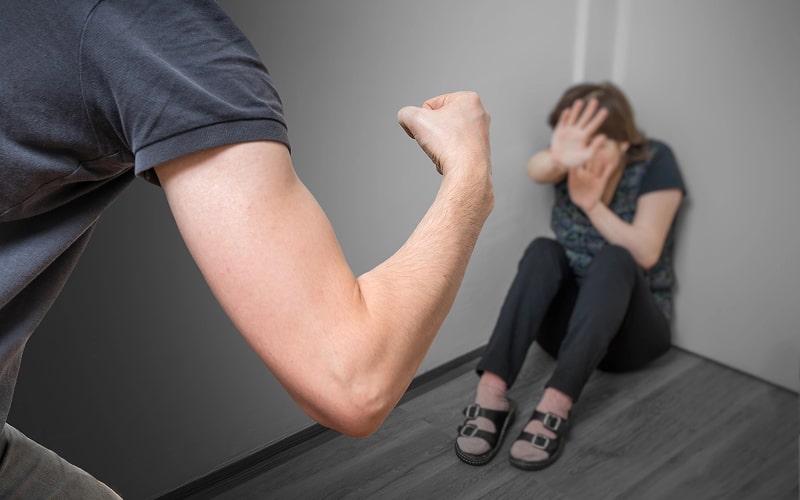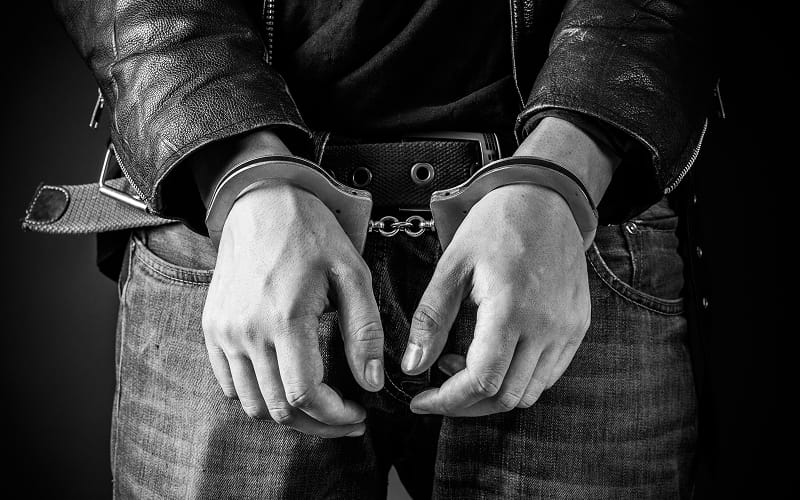Being accused of domestic assault in Fairfax County can turn your life upside down. A conviction can result in jail time, hefty fines, and a permanent criminal record. However, not every accusation is straightforward sometimes, the accused was simply trying to protect themselves from harm.
Self-defense is a legal right, but successfully proving it in a domestic assault case requires a clear understanding of the law. Virginia’s legal system recognizes self-defense under specific circumstances, but the burden of proving it often falls on the accused. Knowing how the law applies and how to present a strong defense can make all the difference in the outcome of a case.
This article breaks down domestic assault laws in Virginia, explores when self-defense is a valid argument, and explains the legal process. Finally, you will read about how Fairfax County Criminal Attorneys can provide the legal guidance necessary to protect your rights.

Understanding Domestic Assault In Virginia
The Virginia Code defines domestic assault as an act of assault and battery against a family or household member. This includes spouses, former spouses, parents, children, siblings, and individuals who have lived together within the past year. Even if no physical injury occurs, a simple act of force or an attempt to cause harm can lead to a charge.
Verbal threats alone may not constitute assault unless they are accompanied by actions that put the alleged victim in immediate fear of harm. This broad definition means that arguments or minor altercations can quickly escalate into criminal charges. Once law enforcement gets involved, the accused may be arrested even if the alleged victim does not wish to press charges.
Penalty For First Offense
A first-time offense is classified as a Class 1 misdemeanor, which carries penalties of up to 12 months in jail and a $2,500 fine. Additionally, a conviction results in a protective order, which may prohibit contact with the alleged victim and restrict access to shared residences or children. These legal consequences can create significant hardships, especially for those with families.
Repeat Domestic Assault Offenses
For repeat offenses, the penalties become even more severe. If someone is convicted of domestic assault two or more times within 20 years, the charge can be upgraded to a Class 6 felony. A felony conviction can lead to up to five years in prison and a permanent criminal record that affects employment and other aspects of life.
Understanding the seriousness of these charges is the first step in building a strong defense. The next section will explain how Virginia law allows individuals to claim self-defense in certain situations.
Self-Defense Laws In Virginia
Facing a domestic assault charge can be overwhelming, especially when the incident arose from an attempt to protect oneself. Virginia law recognizes the right to self-defense, but not every claim is automatically accepted in court. The law carefully examines the circumstances surrounding the use of force, ensuring it is reasonable and necessary.
Understanding how Virginia defines self-defense is essential for anyone seeking to use it as a legal defense. The court will evaluate who initiated the conflict, the level of force used, and whether the accused had an opportunity to retreat. In some cases, even if self-defense is justified, improper actions during the altercation can weaken the claim.
Legal Basis For Self-Defense
Virginia law permits individuals to use force if they reasonably believe they are in immediate danger of unlawful harm. The key factor is that the threat must be imminent fear of future harm is not enough. If someone acts preemptively before a real threat exists, their self-defense claim may be rejected.
Additionally, self-defense must be proportionate to the threat. Using excessive force such as responding to a push with a serious physical attack can turn a legitimate self-defense argument into an unjustified assault. Courts will closely analyze the situation to determine whether the response matches the level of danger faced.
Types Of Self-Defense In Virginia
Virginia recognizes two types of self-defense, each with specific legal conditions:
Justifiable Self-Defense: Used when the accused did not provoke the attack and had no obligation to retreat. The force used must be reasonable under the circumstances.
Excusable Self-Defense: Applies when the accused may have initiated the conflict but attempted to withdraw before using force. The law requires them to retreat as far as safely possible before acting in self-defense.
These legal distinctions play a crucial role in defending against domestic assault charges. The next section explores how these principles apply specifically in domestic settings.
Applying Self-Defense In Domestic Assault Cases
Domestic assault cases in Fairfax County are often emotionally charged and legally complicated. When self-defense is claimed, courts carefully examine the situation to determine whether the accused acted lawfully. Unlike other self-defense scenarios, domestic incidents typically involve close relationships, ongoing conflicts, and limited outside witnesses. These factors can make proving self-defense more challenging.
To succeed in a self-defense claim, the accused must establish that they were facing immediate harm and respond with reasonable force. However, law enforcement officers often make quick decisions at the scene, sometimes arresting individuals without fully understanding the context. This can result in wrongful charges against someone who was simply trying to protect themselves.
Criteria For Claiming Self-Defense
For self-defense to be a valid legal defense, the accused must meet three key requirements:
1. The threat must be immediate and unlawful. The danger must have been occurring at that moment, not just a general fear of future harm.
2. The belief in harm must be reasonable. The accused must have honestly and reasonably believed they were about to suffer harm.
3. The response must be proportionate. The level of force used in self-defense must match the level of threat posed by the other party.
These conditions ensure that self-defense claims are based on genuine protection, not retaliation or excessive force. If the accused overreacted or continued using force after the threat ended, the court may reject the self-defense claim.
Challenges In Domestic Settings
Unlike self-defense cases involving strangers, domestic disputes involve ongoing personal relationships. This can create complications when trying to establish self-defense, such as:
- Mutual accusations: Both parties may claim they were acting in self-defense, making it difficult to determine who was the aggressor.
- Lack of witnesses: Many domestic altercations happen in private, with no neutral third parties to verify what happened.
- Bias in law enforcement response: Officers may make assumptions based on initial statements or injuries, leading to wrongful arrests.
Because self-defense claims can be difficult to prove, strong evidence is crucial. This may include:
- Medical records showing defensive wounds or previous injuries.
- Witness testimony from anyone who saw or heard the altercation.
- Police reports documenting past incidents of violence or threats from the alleged victim.
Gathering and presenting compelling evidence can make the difference between conviction and dismissal. The next section will explore the legal process and how courts evaluate self-defense claims.
Legal Process & Considerations

Raising a self-defense claim in a domestic assault case is only the beginning of a complex legal process. Courts require clear evidence that the accused acted lawfully and did not escalate the situation unnecessarily. Many defendants mistakenly assume that simply stating they acted in self-defense will lead to a dismissal. However, Virginia law places the burden on the accused to present enough evidence to support their claim.
The prosecution’s job is to prove beyond a reasonable doubt that the accused committed domestic assault. Once self-defense is raised, the court examines all available evidence to determine whether the claim is valid.
Burden Of Proof In Self-Defense Cases
While the prosecution always bears the ultimate burden of proof, the defendant must first present some credible evidence of self-defense. Once this is done, the prosecution must prove either:
- The defendant was not in imminent danger at the time of the incident.
- The defendant’s response was disproportionate to the threat.
- The defendant instigated the conflict and did not attempt to withdraw.
Understanding the legal process is crucial for successfully asserting a self-defense claim. The next section will discuss how Fairfax County Criminal Attorneys can help protect the rights of those facing domestic assault charges.
Our Role In Domestic Assault Cases
Fairfax County Criminal Attorneys understands the high stakes of domestic assault cases. Our dedicated legal team provides strategic defense tailored to each client’s situation. We work aggressively to challenge false accusations and ensure that self-defense claims are properly presented.
Our comprehensive legal support includes:
- Case Evaluation: Analyzing the facts and determining the best legal strategy.
- Evidence Gathering: Collecting medical records, police reports, and witness statements.
- Court Representation: Defending clients against wrongful convictions and excessive penalties.
With years of experience in Virginia criminal law, Fairfax County Criminal Attorneys fights to protect clients’ rights. Our client-centered approach ensures that every case receives the attention and strategy needed for success. If you are facing domestic assault charges, contact us today so we can aggressively defend your rights.
Self-defense is a legally valid defense in Virginia domestic assault cases, but proving it requires strong evidence and a clear legal strategy. Understanding the legal framework, the types of self-defense, and how courts evaluate these claims is essential. Fairfax County Criminal Attorneys provides top-tier legal representation for those facing domestic assault charges. We ensure that self-defense arguments are effectively presented.




